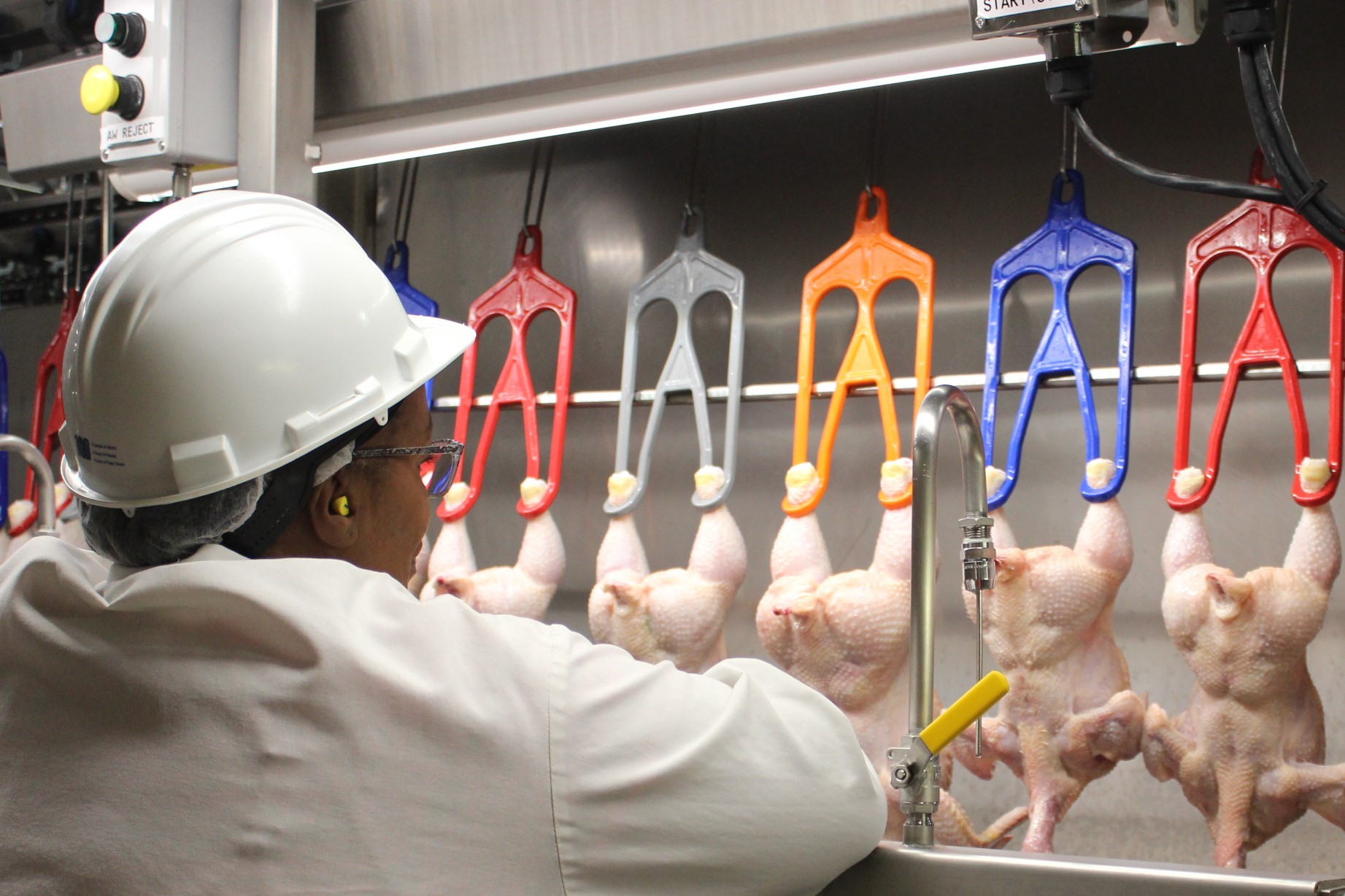
Component 3: Enforceable Final Product Standard
FSIS is assessing whether certain levels or types of Salmonella on raw poultry product present an elevated risk of causing human illness such that they should be considered adulterants. As a result, the Agency is considering implementing a final product standard or standards to ensure that product contaminated with Salmonella that is likely to make people sick is not sold to consumers.
To protect public health, FSIS regulations should prevent product with high levels of contamination and/or specific serotypes from entering commerce. This goal would be accomplished by declaring Salmonella an adulterant. In doing so, FSIS would rely on criteria that were applied to STECs. These criteria are: consideration of serotypes associated with human illness; low infectious dose; severity of human illnesses; and typical consumer cooking practices.
Consistent with its approach to determining the status of certain STECs as adulterants in specific raw beef products, FSIS is considering whether there are specific Salmonella and raw poultry product pairs that have characteristics that distinguish them from other raw poultry products contaminated with Salmonella, such that Salmonella at certain levels and/or types of Salmonella should be considered as an adulterant when present in that specific raw poultry product. For example, FSIS will soon be releasing a proposal that Salmonella meets the critiera to be considered an adulterant in not-ready-to-eat (NRTE) breaded and stuffed raw chicken products, an action that will allow the Agency to better protect public health1.
At the same time, FSIS is exploring if a single product standard for Salmonella in all raw poultry products may be appropriate. From a consumer’s perspective, exposure to a quantity and/or serotype of Salmonella likely to make them sick is a key risk factor for illness that may be consistent across product types. In developing a final product standard, FSIS would evaluate existing scientific support, stakeholder feedback, and access to test results to support timely identification of Salmonella serotypes or pathogenicity factors. FSIS could also take into account documentation presented with a flock and make a regulatory distinction between vaccinated flocks and non-vaccinated flocks in the context of a final product standard. In light of existing testing technology, the Agency is considering initially developing an enforceable final product standard based on quantification rather than a “zero- tolerance” standard for Salmonella.
This final product standard would promote Salmonella reduction by establishments and incentivize upstream practices that reduce Salmonella, including on-farm and transportation practices. As noted above, the interventions at slaughter and processing must demonstrate that they are capable of achieving the final product standard.
FSIS is authorized to use any enforcement tools, up to and including retention to control product and suspension of inspection services, to address continued failures of the food safety system. Establishments would be able to further process the adulterated product to render it safe and wholesome or send it to another inspected establishment for further processing.
If an enforceable final product standard is ultimately finalized and implemented, FSIS is considering sunsetting the current Salmonella performances standards, including the moving window-approach to sampling and categorization of establishments.
1FSIS will soon release a proposed notice of determination declaring that NRTE breaded and stuffed raw chicken products that contain Salmonella at levels of 1 colony forming unit (CFU) per gram or higher are adulterated.



